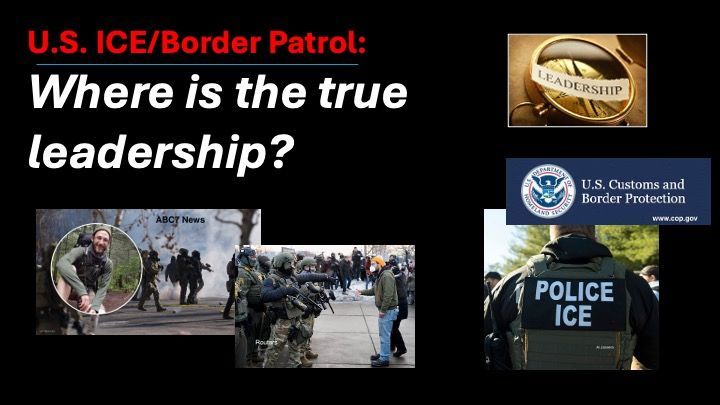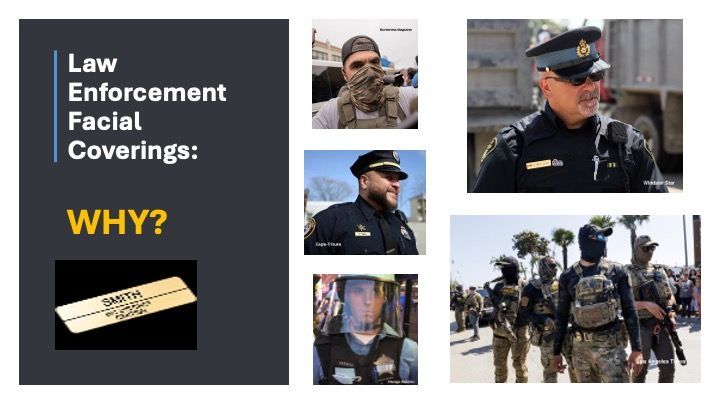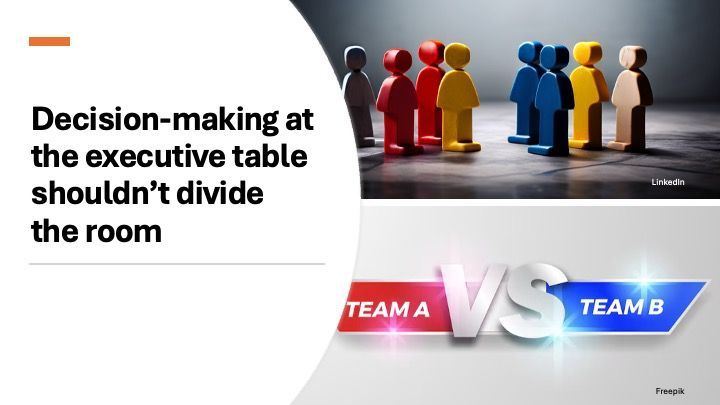New Paragraph
Focusing on knowledge of policy isn't the answer
During my law enforcement career, I always struggled with our various promotional processes in terms of their efficacy.
Although they differed somewhat from time to time, at the lower levels they generally consisted of a local recommendation; a written exam (largely based on pertinent legislation and the odd inane puzzle/logic question) and then the top X% would be interviewed by a panel of senior officers. Interview questions were situational in nature, i.e. ‘what if’ scenarios regarding policy and procedure decisions, with the occasional query that might loosely relate to ‘leadership’. It all culminated in a ‘list’ of those identified as being ready for promotion to Corporal or Sergeant. As the list of candidates grew thin, we’d do it all again. The questions didn’t change a lot over time.
I passed some and failed others, each time questioning how the process would actually identify officers that could lead a platoon, unit or detachment. It undoubtedly did at times and some great leaders were selected, but it was more a function of good luck than good management. In other instances, names appeared that most of us knew were a complete train wreck, in that they were lazy; crazy; avoided police work all costs; were afraid of their own shadow; treated people terribly and or couldn’t lead a pack of Boy Scouts to a campfire. Then, many wonderful leaders that I’d follow anywhere never made the cut.
At mid-management levels, there was most often an interview phase, with the top candidates being then put through an “Assessment Centre”, which was four days off-site and comprised of a schedule of group discussions, interviews, an administrative exercise and perhaps a paper of some description. It was better, but still not related to ‘leading people’.
After one process that involved an Assessment Centre in which I was successful, I wrote a 14-page critique of the process and submitted it through channels to the head of our Human Resources Branch. My Superintendent called it my “career suicide memo.” I just wanted those in power to hear it from someone who had been successful so they wouldn’t regard the feedback as being sour grapes. I heard crickets from there.
Months later I participated in a town hall meeting of sorts where said ‘Head of HR’ was a speaker. He opened the floor to suggestions on how to improve our promotional process. I offered several of the points made in my earlier memo, and he seemed truly excited while he furiously make notes. I then pointed out that I had sent all those comments to him by memo, but he had not replied. It was all smoke and mirrors and he really didn’t give a hoot about what any of us thought or said.
At one point interested members had to submit a self-assessment detailing examples that demonstrated how they met the various competencies. Verifying that document for so many applicants was impossible as well. Eventually we got rid of the written exam, advertised every open position and interviewed. That was very challenging to manage in a deployed organization of 9,000 people. Even though we developed some interview questions to delve into the member’s leadership competencies (decision-making, people management, relationship building, change management, etc.), some people fabricated tales about accomplishing things that never happened, while others told true stories about actual events but either exaggerated their involvement or outright lied about even being there. Others had legitimate and perfect examples to give the panel but weren’t always the best at saying “Hey, look at me, I’m wonderful. Pick me.”
Sometimes, particularly at the upper levels, they picked who they wanted and simply placed them into positions. At times the selection was based on who was liked for whatever reason, including who might excel at particular job skill - but not necessarily because of proven leadership skills. Instead, we heard justifications like, "Oh he has a law degree" or "She is a good undercover officer". Again, some good folks were picked and some not. Those promoted were always elated; those not remained disappointed; and thousands of hardworking people that carried the OPP on their backs then had to then work with and for all of the above.
Through those decades and process iterations, it was apparent that some people had jobs that allowed them to study at their desks and they were home every night and weekend to study more and/or spend time with their families. Others were in busy roles where studying at work was not an option, and many of those officers were away from home on operations or investigations five days a week or more. When they finally did get home for a day or two, it was hard to spend the little time they had studying, while their families and the household chores list all needed attention.
We also conducted so-called “360 Interviews” in some specific processes (i.e. Detective Inspector), to seek peer, subordinate and supervisor feedback – including on leadership ability. It was very telling in some cases, but quite resource intensive, expensive, and we always struggled with finding the balance between interviewing those individuals that were identified by the candidates themselves (references in essence), versus picking them more randomly.
As Commissioner, I challenged our management team, HR and the member’s association to come up with suggestions to improve our process. Changes were implemented here and there but no panacea was ever achieved. I failed from that perspective.
I don’t have all the answers to this promotional assessment dilemma for police services. If I did, I would be a rich man. However, in my opinion:
- Policy is important, particularly policies that carry a high level of organizational risk if not followed. Legislation is very similar. Lower risk policies and laws can be looked up when they arise, but most or all of them aren’t worth examining in great detail in promotional processes. Knowledge of obscure policies or laws for which violators will only receive a warning or ticket at most, means nothing in the big picture.;
- Organizations cannot just promote the smooth talkers; talented fabricators of facts; and people that have time to study but from a leadership perspective couldn’t lead a dog to drink. Most will leave a path of destruction that may not be realized until the lives of a lot of employees are irreparably harmed; and
- Proven leadership ability is the most critical element to focus on. Past performance most often indicates future performance, so if an individual is a dumpster fire at one level, they aren’t likely to become the epitome of leadership a level or two higher. Figure out ways to measure that skill that are more definitive than the individual spewing falsities about how good they are. Focus on the impacts they have had at the subordinate and peer levels and not just the opinions of those whose egos the candidate has puffed up.
Effective people-centered leadership will make or break a law enforcement organization. That’s what will inspire people; lead to professionalism, productivity and the provision of quality service; and will greatly contribute to attaining organizational public safety goals.
Make ‘leadership’ the foundational principle for developing, identifying and promoting supervisors, managers and executives.




